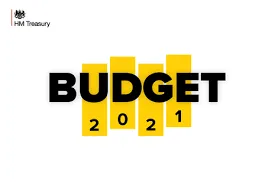
KEY Highlights:
- a super-deduction for companies investing in new plant and machinery
- a time extension of the temporary increase to the SDLT nil rate band for residential property in England and Northern Ireland
- an extension to the temporary 5% reduced rate of VAT for certain supplies
- a temporary increase in the carry-back period for business losses
- an increased rate of corporation tax from 2023
- a new mortgage guarantee scheme
- a Self-Employment Income Support Scheme fourth and fifth grant. 600,000 more self-employed people will be eligible for help as access to grants is widened
- an extension to the business rates holiday in England
- Personal allowance will increase by CPI (0.5%) for 2021/22 to £12,570. Personal allowance will be frozen at £12,570 for the tax years 2022/23 to 2025/26.
- 2021/22 basic rate (20%) band will be £37,700, 40% band threshold will be £50,270.
Individuals pay tax at 45% on their income over £150,000. - The first £2,000 of dividends is chargeable to tax at 0% (the Dividend Allowance). Dividends received above the allowance are taxed at 7.5% for basic rate taxpayers, 32.5% for higher rate taxpayers and 38.1% for additional rate taxpayers
- The Coronavirus Job Retention Scheme (CJRS) / Furlough extended to 30 September 2021 with Government continuing to pay 80% of employee’s wages for hours not worked. Employers to contribute 10% in July and 20% in August and September
- Support for the self-employed also to be extended until September
- £20 weekly uplift in Universal Credit worth £1,000 a year to be extended for another six months
- Working Tax Credit claimants will get £500 one-off payment
- Minimum wage to increase to £8.91 an hour from April
Some Budget proposals may be subject to amendment in the 2021 Finance Act. For more information:???????? https://www.gov.uk/government/topical-events/budget-2021
-
Previous Post
Definition of a TEAM











